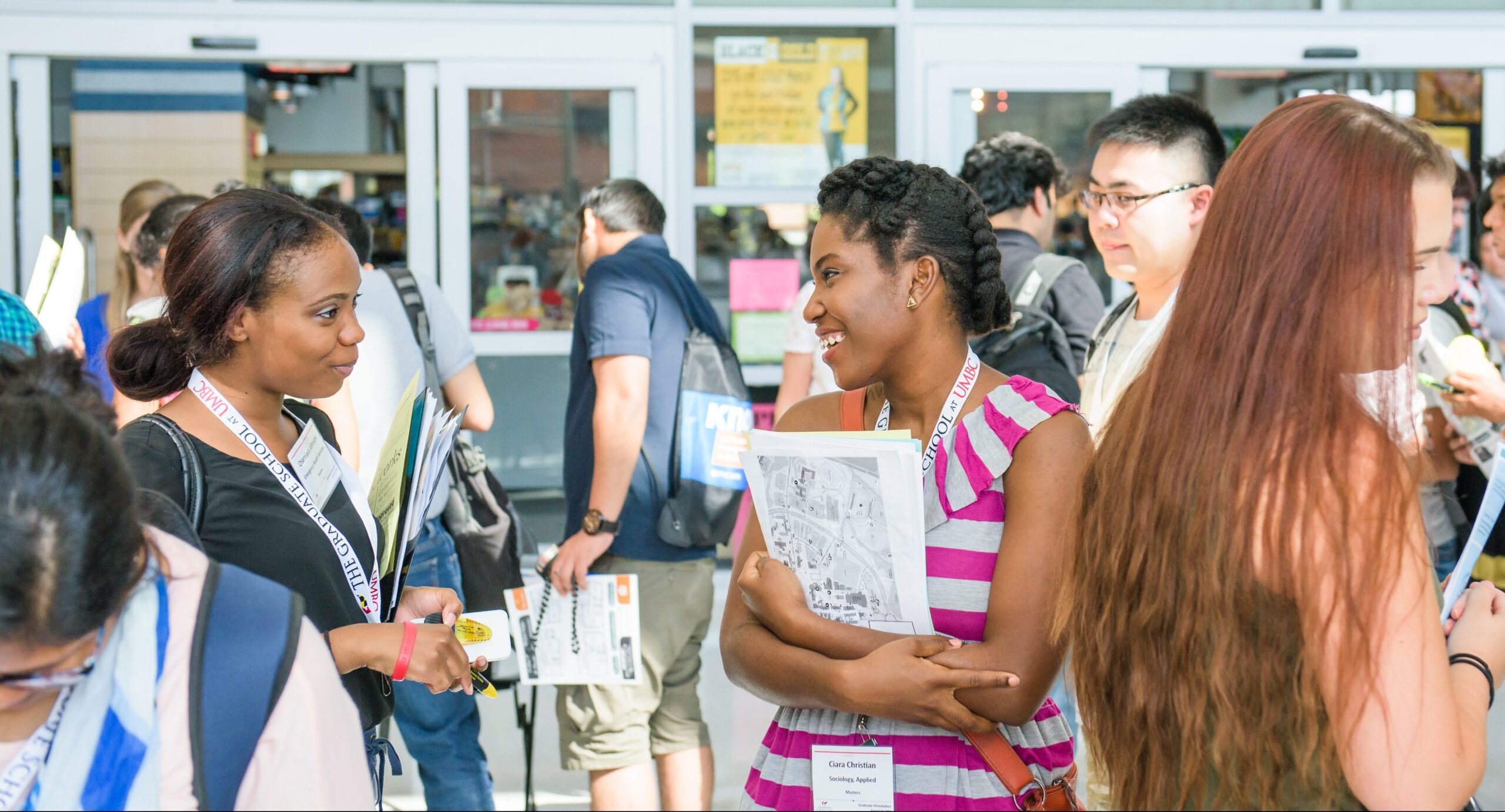UMBC is one of 29 universities nationwide joining forces to better serve Ph.D. students by examining the broad range of pathways they take from graduate school to career. The Ph.D. Career Pathways study is backed by the National Science Foundation and Andrew W. Mellon Foundation and organized by the Council of Graduate Schools. It will provide much-needed data on graduate students’ experiences and perspectives at a pivotal moment when career possibilities for Ph.D.s are changing substantially and universities are searching for ways to better prepare students for opportunities and challenges ahead.
“The assumption that the Ph.D. is primarily a pathway to the professoriate is just not the case,” says Janet Rutledge, dean of the UMBC Graduate School. “We’re hoping that by being part of this study, we will determine the best ways to focus our time and our resources to most effectively guide our students.”
UMBC and Morgan State University are collaborating as partners in the study, which will include students in graduate programs across the humanities and STEM. Morgan is the only participating HBCU, and UMBC is one of only six Minority-Serving Institutions, and the only one outside of the University of California system. The diversity of participating institutions will be essential to the study’s success, Rutledge notes, explaining, “If we’re trying to get a view of what the pathways are for students then we need to have a variety of universities represented.”
In addition to the Ph.D. Career Pathways study, UMBC is participating in the Coalition for Next Generation Life Sciences, which will investigate graduate program alumni pathways specifically in the life sciences. This study is led by Johns Hopkins and University of California, San Francisco, and also includes UMBC, Cornell, MIT, University of Michigan, University of Pennsylvania, and University of Wisconsin.
Of course, Rutledge points out, “Before you can survey alumni, you need to find out where they are.” Funding from the two projects together will support a graduate student research assistant to gather that information through contacting alumni networks, scouring social media, and interviewing department chairs and faculty.
In addition to supporting current UMBC students, Rutledge hopes UMBC’s participation in the Ph.D. Career Pathways study will help students considering pursuing a Ph.D. at any institution. “People undertake Ph.D.s without always having a full sense of what the experience will be like or what it could mean for their future,” she says. “We want to have more transparency for current and prospective students to help them understand job and career pathways with a Ph.D., and how you go about finding opportunities.”
Rutledge also sees great potential for this kind of research to help grow universities’ relationships with companies, government agencies, and other non-academic research institutions, which are often trying to reach talented researchers early in their careers. Connecting UMBC graduate students with internship and work opportunities through these partners could help those students access broader career opportunities, help employers access a highly skilled and diverse talent pool, and boost research collaborations and resource sharing among partners.
Already, successful partnerships of this kind have been “a win-win for the mentor and the student,” says Rutledge.
Ph.D. Career Pathways surveys, developed by the Council of Graduate Schools, will be implemented this year, with the first data coming in next fall. Rutledge and her team are excited to be part of such an important national study in graduate education, but their focus always comes back to the scholars they work with every day. “We really want to understand the pathways of our current students and our alumni, as well as learn how other universities support their graduate students, so that we can better serve UMBC graduate students of today and of the future.”
Image: New UMBC graduate students get to know each other and learn about ways to become involved at the Graduate Student Information Fair. Photo by Marlayna Demond ’11 for UMBC.
Tags: GraduateSchool, Research




